-

新人教版高中英语必修3Unit 5 The Value of Money-Discovering Useful Structures导学案
4.They were going to find someone to take part in their bet when they saw Henry walking on the street outside.[归纳]1.过去将来时的基本构成和用法过去将来时由“would+动词原形”构成,主要表示从过去某一时间来看将要发生的动作(尤其用于宾语从句中),还可以表示过去的动作习惯或倾向。Jeff knew he would be tired the next day.He promised that he would not open the letter until 2 o'clock.She said that she wouldn't do that again.2.表示过去将来时的其他表达法(1)was/were going to+动词原形:该结构有两个主要用法,一是表示过去的打算,二是表示在过去看来有迹象表明将要发生某事。I thought it was going to rain.(2)was/were to+动词原形:主要表示过去按计划或安排要做的事情。She said she was to get married next month.(3)was/were about to+动词原形:表示在过去看来即将要发生的动作,由于本身已含有“即将”的意味,所以不再与表示具体的将来时间状语连用。I was about to go to bed when the phone rang.(4)was/were+现在分词:表示在过去看来即将发生的动作,通常可用于该结构中的动词是come,go,leave,arrive,begin,start,stop,close,open,die,join,borrow,buy等瞬间动词。Jack said he was leaving tomorrow.

新人教版高中英语必修3Unit 4 Space Exploration-Reading and Thinking教学设计一
Q4: What is the function of the International exploration ?Having astronauts from different countries on boardQ5: What can you learn from Para 4 ?China has made great achievements in exploring spaceQ6: What is the attitude to the space exploration ?SupportiveStep 6 Post reading---RetellPeople have always wanted to learn more about space. Before the mid-20th century, most people felt (1)_________ (travel) into space was an impossible dream. However, (2)____ the help of scientists, peoplesucceeded in realizing their dream (3) _________ (explore) space. On 4 October 1957, the Sputnik 1 satellite (4) ____________(launch) by the USSR. (5) ________________ scientists try to make sure nothing goes wrong, accidents can still happen. These disasters made everyone(6)___________(disappoint), but people still believe in the importance of (7) ________(carry) on space exploration. In 2003, China became the third country to (8)_____________ (independent) send humans into space. Then Shenzhou 6 and 7 completed (9)____ second manned orbit and the first Chinese spacewalk. In spite of the difficulties, scientists hope future (10)__________ (discovery) will not only enable us to understand the universe but also help us survive well into the future.Answers: 1. travelling 2. with 3. to explore 4. was launched 5. Although6. disappointed 7. carrying 8. independently 9. a 10. discoveriesStep 6 Post reading---Critical thinkingQ1: What do you think of the space exploration ? I think it is beneficial to us. Through further study of space, people will make full use of it in the future, such as the space experiments by Wang Yaping in Tian Gong 1.Q2: If you are determined to be an astronaut, what should you prepare at present ?First of all, I should study hard to get a related college degree. Besides, I must keep mental and physical healthy.Step 7. HomeworkTry to summarize the structure of the article by a mind map.

新人教版高中英语必修3Unit 4 Space Exploration-Reading For Writing教学设计一
另一方面,其余的人反对这个计划,因为它可能会导致一些不好的影响。7.I hold the belief that space exploration not only enable us to understand how the universe began but also help us survived well into the future.我坚信探索太空不仅能够使我们了解宇宙的起源而且能够帮助我们更好地走进未来。8.I think we should spend more time and money exploring space so as to provide new and better solutions to people's shortterm and longterm problems.为了给人类的短期和长期问题提供更新和更好的解决方法,我认为我们应该花更多的时间和金钱来探索太空。9.From my point of view,it is wrong of young people to depend on their telephones too much,which may do harm to both their physical and mental health.在我看来,年轻人过度依赖手机是不对的,因为它们可能会对他们的身心健康都有害。最近你班同学就“人类是否应该进行宇宙探索”这个问题进行了激烈的讨论。有人认为,探索宇宙不仅让人类更好地了解宇宙的发展,还可以用来指导农业生产,以及把一些探索太空的高新技术用于现实生活;也有一些人认为探索太空花掉了大量的人力物力;影响了人们的生活水平。请你根据以下情况写一篇报告并发表自己的观点。注意:1.写作内容应包括以上全部要点,可适当发挥,使上下文连贯;

新人教版高中英语必修3Unit 5 The Value of Money- Discovering Useful Structure教学设计
Step 3 Meaning1. 过去将来时表示从过去某一时间来看将要发生的动作或存在的状态, 常用在宾语从句中。一般由“would/should +动词原形”构成。She hoped that they would meet again someday. 她希望将来有一天他们能再见面。2. was/were going to+动词原形: 表示过去将要发生或很有可能发生的动作, 常用于口语中, 表示预言、意图或者打算等。He was going to start work the following week. 他打算下星期开始工作。3. was/were about to do: 常用来表示即将发生的动作, “刚要/正要做……”。注意该结构不与任何时间状语连用。I felt that something terrible was about to happen. 我感到某种可怕的事情即将发生。4.was/were to do: 表示“曾计划做某事”, 如果表示“本来计划做某事, 动作没实现”, 则需用 “was/were to have done”。She said she was to have told me about the accident. 她说她本来想告诉我关于事故的事。5.Start, go, come, leave, see, meet等动词的过去进行时: 表示就过去某一时刻而言即将发生的动作。She was coming later. 她随后就来。I had just put on my overcoat and was leaving to visit a friend of mine. 我刚穿上外套要去看我的一个朋友。

新人教版高中英语必修3Unit 5 The Value of Money-Listening &Speaking教学设计
Step 4: Listen again and decide if the following statements are true (T) or false (F).1 It was the first time Chen Liyan's story was reported. T口 F口2 Chen found 10,000 yuan in a small plastic bag in Taiyuan railway station口 F口3 Wang Zheng apologized to Chen because he couldn't offer her more money. T口 F口4 Chen took out a large loan to cure her daughter, T口 F口5 Wang set up a fundraising website for Chen's daughter after Chen told him about her situation. T口 F口Step 5:After listening, discuss the questions.1 What kind of person do you think Chen Liyan is?Chen Liyan is generous and honest because she returned a large sum of money to the owner.2 Did Chen return the money because she didn't need it?No. She returned the money because it was the right thing to do. Evidence for this is that she refused to accept the reward money because she felt that it had not been earned. 3 Is it common for people to do what Chen did?It depends on the culture. In some countries it is quite common to return money that has been found. In other countries, people believe "Finders are keepers!" 4 How did Wang Zheng feel about the return of his money?He must have been very happy and relieved to have gotten his money back. We know this because he thanked Chen repeatedly and even offered her a reward.5 Why did Ma Dongbao tell Wang about Chen's family?He must have had great sympathy for Chen and her daughter and wanted to help them.'We know this because he arranged help for them. 6 How did the news reporter feel about Chen's actions?The news reporter felt that it showed that money wasn't the most important thing in life. We know this because the reporter told us that this is what Chen believes. and then said, “that's a great attitude to take."

新人教版高中英语必修3Unit 5 The value of money-Reading and Thinking教学设计二
? Could you offer me some kind of work here?? I don’t want your charity, I just want an honest job.? Careless: I landed in Britain by accident.Step 7:Consolidation.? Find Henry? Roderick and Oliver were I .making a bet when they saw Henry, a poor young man. ? Know Henry? About a month ago, Henry was sailing and later he found himself carried out to sea by a strong wind. Fortunately, he 2.was spotted by a ship. And it was the ship that brought him to 3.England? Offer money to Henry ? Oliver and Roderick gave Henry a letter and told him that there was money in it. They 4.persuaded him to accept it, and made him 5.promise that it wouldn't be opened until 2 o'clock.Step 8:Language pointsa large amount of: a large quantity of; a great deal ofe.g. They bought a large amount of furniture before they moved their new house.make a bet: make an arrangement to risk money, etc. on an event of which the result is doubtful.e.g. We made a bet on the result of the match.permit sb to do something: allow somebody to do somethinge.g. My mother doesn’t permit me to ride in the street after it rained.by accident: as a result of chancee.g. I only found it by accident.stare at: look at somebody or something with the eyes wide open in a fixed gaze( in astonishment, wonder, fear, etc)to be honest: to tell you the truth; to be franke.g. To be honest, I don’t think we have a chance of winning.Step7 Homework:What do you think will happen to Henry? Will the bank-note help him or get him into trouble?

新人教版高中英语必修3Unit 5 The Value of Money-Reading for Writing教学设计二
2. 您能看到, 我头发太长了。You can see that my hair is much too long.3. 无论什么时候, 只要您想回来就回来。Please come back whenever you want.4. 您仅有很少的头发要理! You only have too little hair to cut !5. 为您服务是我的荣幸!It is my honour to serve you!Step 9 Writing(Henry is walking down the street when he sees a sign for a place that cuts hair. He decides to have it cut. )H=Henry B=BarberH: Good afternoon, I’d like to have my hair cut, if I may. (The barber looks at Henry’s hair and continues cutting another man’s hair. ) Er, I’d really like a haircut. As you can see it’s much too long. B: (in a rude manner) Yes, I can see that. Indeed, I can. H: Fine, well, I’ll have a seat then. (He sits in one of the barber’s chairs. The barber turns to look at Henry. )B: It’s quite expensive here, you know! Are you sure you can afford it?H: Yes. I think so. (After his hair is cut, the barber tells Henry how much he must pay. Henry shows the barber the bank note. )B: Why Mr. . . (looks shocked)H: Adams. Henry Adams. I’m sorry. I don’t have any change. B: Please don’t worry! (wearing a big smile) Nothing to worry about! Nothing at all! Please come back whenever you want, even if you only have too little hair to cut! It will be my honour to serve you!Step 10 Pair workExchange drafts with a partner. Use this checklist to help your partner revise his/her draft.1. Are all the elements of a play included and in good order ?2. Do the character use suitable language ?3. Are the stage directions clear and useful ?4. Is the plot clear and exciting enough ?

新人教版高中英语选修2Unit 4 Journey Across a Vast Land教学设计
当孩子们由父母陪同时,他们才被允许进入这个运动场。3.过去分词(短语)作状语时的几种特殊情况(1)过去分词(短语)在句中作时间、条件、原因、让步状语时,相当于对应的时间、条件、原因及让步状语从句。Seen from the top of the mountain (=When it is seen from the top of the mountain), the whole town looks more beautiful.从山顶上看,整个城市看起来更美了。Given ten more minutes (=If we are given ten more minutes), we will finish the work perfectly.如果多给十分钟,我们会完美地完成这项工作。Greatly touched by his words (=Because she was greatly touched by his words), she was full of tears.由于被他的话深深地感动,她满眼泪花。Warned of the storm (=Though they were warned of the storm), the farmers were still working on the farm.尽管被警告了风暴的到来,但农民们仍在农场干活。(2)过去分词(短语)在句中作伴随、方式等状语时,可改为句子的并列谓语或改为并列分句。The teacher came into the room, followed by two students (=and was followed by two students).后面跟着两个学生,老师走进了房间。He spent the whole afternoon, accompanied by his mom(=and was accompanied by his mom).他由母亲陪着度过了一整个下午。

新人教版高中英语选修2Unit 1 Science and Scientists-Learning about Language教学设计
Step 7: complete the discourse according to the grammar rules.Cholera used to be one of the most 1.__________ (fear) diseases in the world. In the early 19th century, _2_________ an outbreak of cholera hit Europe, millions of people died. But neither its cause, 3__________ its cure was understood. A British doctor, John Snow, wanted to solve the problem and he knew that cholera would not be controlled _4_________ its cause was found. In general, there were two contradictory theories 5 __________ explained how cholera spread. The first suggested that bad air caused the disease. The second was that cholera was caused by an _6_________(infect) from germs in food or water. John Snow thought that the second theory was correct but he needed proof. So when another outbreak of cholera hit London in 1854, he began to investigate. Later, with all the evidence he _7_________ (gather), John Snow was able to announce that the pump water carried cholera germs. Therefore, he had the handle of the pump _8_________ (remove) so that it couldn't be used. Through his intervention,the disease was stopped in its tracks. What is more, John Snow found that some companies sold water from the River Thames that __9__________________ (pollute) by raw waste. The people who drank this water were much more likely _10_________ (get) cholera than those who drank pure or boiled water. Through John Snow's efforts, the _11_________ (threaten) of cholera around the world saw a substantial increase. Keys: 1.feared 2.when 3. nor 4.unless 5.that/which 6.infection 7.had gathered 8.removed 9.was polluted 10.to get 11. threat

新人教版高中英语选修2Unit 1 Science and Scientists-Reading and thinking教学设计
Step 5: After learning the text, discuss with your peers about the following questions:1.John Snow believed Idea 2 was right. How did he finally prove it?2. Do you think John Snow would have solved this problem without the map?3. Cholera is a 19th century disease. What disease do you think is similar to cholera today?SARS and Covid-19 because they are both deadly and fatally infectious, have an unknown cause and need serious public health care to solve them urgently.keys:1. John Snow finally proved his idea because he found an outbreak that was clearly related to cholera, collected information and was able to tie cases outside the area to the polluted water.2. No. The map helped John Snow organize his ideas. He was able to identify those households that had had many deaths and check their water-drinking habits. He identified those houses that had had no deaths and surveyed their drinking habits. The evidence clearly pointed to the polluted water being the cause.3. SARS and Covid-19 because they are both deadly and fatally infectious, have an unknown cause and need serious public health care to solve them urgently.Step 6: Consolidate what you have learned by filling in the blanks:John Snow was a well-known _1___ in London in the _2__ century. He wanted to find the _3_____ of cholera in order to help people ___4_____ it. In 1854 when a cholera __5__ London, he began to gather information. He ___6__ on a map ___7___ all the dead people had lived and he found that many people who had ___8____ (drink) the dirty water from the __9____ died. So he decided that the polluted water ___10____ cholera. He suggested that the ___11__ of all water supplies should be _12______ and new methods of dealing with ____13___ water be found. Finally, “King Cholera” was __14_____.Keys: 1. doctor 2. 19th 3.cause 4.infected with 5.hit 6.marked 7.where 8.drunk 9.pump 10.carried 11.source 12.examined 13.polluted 14.defeatedHomework: Retell the text after class and preview its language points

新人教版高中英语选修2Unit 2 Bridging Cultures-Discovering useful structures教学设计
The grammar of this unit is designed to review noun clauses. Sentences that use nouns in a sentence are called noun clauses. Nominal clauses can act as subject, object, predicate, appositive and other components in compound sentences. According to the above-mentioned different grammatical functions, nominal clauses are divided into subject clause, object clause, predicate clause and appositive clause. In this unit, we will review the three kinds of nominal clauses. Appositive clauses are not required to be mastered in the optional compulsory stage, so they are not involved.1. Guide the students to judge the compound sentences and determine the composition of the clauses in the sentence.2. Instruct students to try to learn grammar by generalizing grammar rules, controlling written practice, and semi-open oral output.3. Inspire the students to systematize the function and usage of noun clause1.Instruct students to try to learn grammar by generalizing grammar rules, controlling written practice, and semi-open oral output.2.Inspire the students to systematize the function and usage of noun clauseStep1: The teacher ask studetns to find out more nominal clauses from the reading passage and udnerline the nominal clauses.

新人教版高中英语选修2Unit 3 Food and Culture-Discovering useful structures教学设计
The newspaper reported more than 100 people had been killed in the thunderstorm.报纸报道说有一百多人在暴风雨中丧生。(2)before、when、by the time、until、after、once等引导的时间状语从句的谓语是一般过去时,以及by、before后面接过去的时间时,主句动作发生在从句的动作或过去的时间之前且表示被动时,要用过去完成时的被动语态。By the time my brother was 10, he had been sent to Italy.我弟弟10岁前就已经被送到意大利了。Tons of rice had been produced by the end of last month. 到上月底已生产了好几吨大米。(3) It was the first/second/last ... time that ...句中that引导的定语从句中,主语与谓语构成被动关系时,要用过去完成时的被动语态。It was the first time that I had seen the night fact to face in one and a half years. 这是我一年半以来第一次亲眼目睹夜晚的景色。(4)在虚拟语气中,条件句表示与过去事实相反,且主语与谓语构成被动关系时,要用过去完成时的被动语态。If I had been instructed by him earlier, I would have finished the task.如果我早一点得到他的指示,我早就完成这项任务了。If I had hurried, I wouldn't have missed the train.如果我快点的话,我就不会误了火车。If you had been at the party, you would have met him. 如果你去了晚会,你就会见到他的。
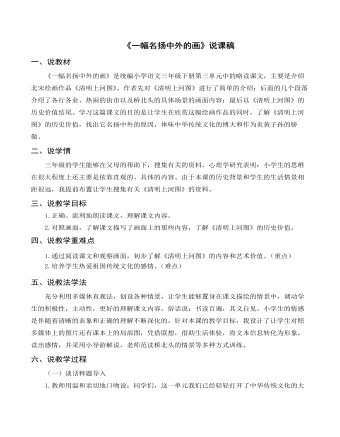
(说课稿)部编人教版三年级下册《一幅名扬中外的画》
一、说教材《一幅名扬中外的画》是统编小学语文三年级下册第三单元中的略读课文,主要是介绍北宋绘画作品《清明上河图》,作者先对《清明上河图》进行了简单的介绍;后面的几个段落介绍了各行各业、热闹的街市以及桥北头的具体场景的画面内容;最后以《清明上河图》的历史价值结尾。学习这篇课文的目的是让学生在欣赏这幅绘画作品的同时,了解《清明上河图》的历史价值,找出它名扬中外的原因,体味中华传统文化的博大和作为炎黄子孙的骄傲。二、说学情三年级的学生能够在父母的帮助下,搜集有关的资料。心理学研究表明:小学生的思维在很大程度上还主要是依靠直观的、具体的内容。由于本课的历史背景和学生的生活情景相距很远,我提前布置让学生搜集有关《清明上河图》的资料。三、说教学目标1.正确、流利地朗读课文,理解课文内容。2.对照画面,了解课文描写了画面上的那些内容,了解《清明上河图》的历史价值。四、说教学重难点1.通过阅读课文和观察画面,初步了解《清明上河图》的内容和艺术价值。(重点)2.培养学生热爱祖国传统文化的感情。(难点)
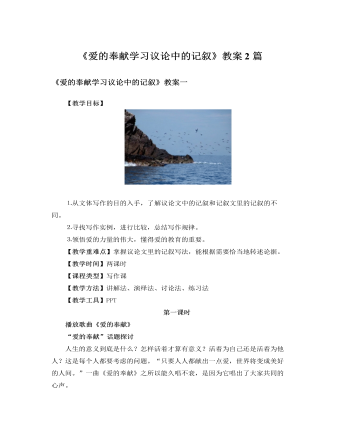
人教版高中语文必修3《爱的奉献学习议论中的记叙》教案2篇
方法点拨教师:有的同学叙述事实论据时,不突出重点和精华,不注意取舍,水分太多,有许多的叙述描写,有时还有详细的故事情节,文章几乎成了记叙文,使文章的论点无法得到充分的证明,这是写议论文的大忌。那么:议论文中的记叙有哪些特点?同学各抒己见。投影显示:1.议论中的记叙不是单纯的写人记事,记叙文字是为议论服务的,其目的是为作者所阐明的道理提供事实依据。所以,在记叙时要求简洁、概括,舍弃其中的细节,仅仅交代清楚事件或者人物的概貌即可,一般不在各种描写手段上下功夫,只要把能证明观点的那个部分、侧面交代清楚就行了。2.议论文中的记叙性文字不得超过总字数的1/3,否则视为文体不当。能力提升一、教师:了解了议论文中的记叙的特点,接下来我们看看今天的话题:“爱的奉献”,你想从哪个角度立论?有哪些素材?
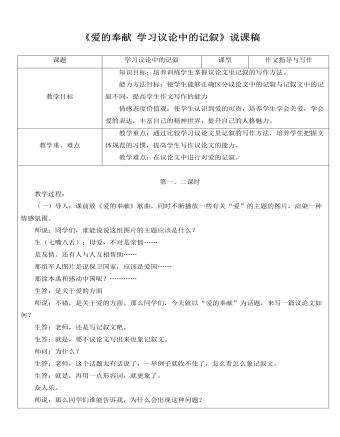
人教版高中语文必修3《爱的奉献 学习议论中的记叙》说课稿
教学过程:(一)导入:课前放《爱的奉献》歌曲,同时不断播放一些有关“爱”的主题的图片,渲染一种情感氛围。师说:同学们,谁能说说这组图片的主题应该是什么?生(七嘴八舌):母爱,不对是亲情……是友情、还有人与人互相帮助……那组军人图片是说保卫国家,应该是爱国……那徐本禹和感动中国呢?…………生答:是关于爱的方面师说:不错,是关于爱的方面。那么同学们,今天就以“爱的奉献”为话题,来写一篇议论文如何?生答:老师,还是写记叙文吧。生答:就是,要不议论文写出来也象记叙文。师问:为什么?生答:老师,这个话题太有话说了,一举例子就收不住了,怎么看怎么象记叙文。生答:就是,再用一点形容词,就更象了。众人乐。师说:那么同学们谁能告诉我,为什么会出现这种问题?一生小声说:还不是我们笨,不会写。师说:不是笨,也不是不会写,你们想为什么记叙文就会写,一到议论文就不会了,那是因为同学们没有明白议论文中的记叙与记叙文中的记叙有什么不同,所以一写起议论文中的记叙,还是按照记叙文的写法写作,这自然就不行了。那好,今天我们就从如何写议论文中的记叙讲起。
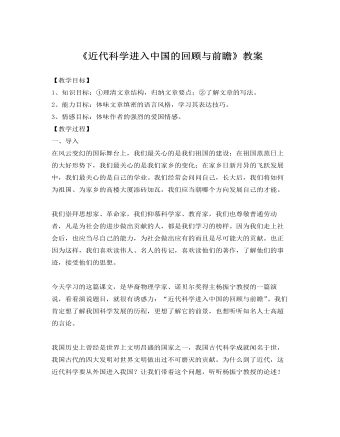
人教版高中语文《近代科学进入中国的回顾与前瞻》教案
七、联系实际·拓展延伸看云起云飞——交流对我国现代科技发展转机的看法甲生说:本文作者把成立京师大学堂、废除科举、派遣留学生看作三件有划时代意义的大事,是很有见地的。京师大学堂是戊戌变法的产物,是北京大学的前身,是我国第一次设立的大学,所教东西比较全面,包括了现代的科学。这表明,国人已经从先前的自大、愚昧的精神状态中转过弯来。先前不少人把西方科技看作是雕虫小技,而认为我们才是正宗的。这是狂妄自大。又有一些人走到另一个极端去,产生了什么“种族退代论”,这是自卑感在作怪。成立京师大学堂,标志着国人的认识产生了根本的变化。我们对西方科技有了正确的认识,看到科技在国计民生中起的重要作用,克服了自大缺点。我们又重新树立了信心,认识到,改革教育、办好学校,我们也同样能够培养出一批优秀的科技人才,同样可以发展科技,借以富民强国,这就克服了自卑感。
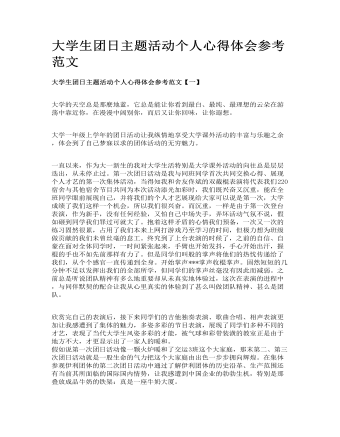
大学生团日主题活动个人心得体会参考范文
欣赏完自己的表演后,接下来同学们的吉他独奏表演、歌曲合唱、相声表演更加让我感遭到了集体的魅力,多姿多彩的节目表演,展现了同学们多种不同的才艺,表现了当代大学生风姿多彩的才能,被气球和彩带装潢的教室正是由于地方不大,才更显示出了一家人的暖和。假如说第一次团日活动像一颗火炉暖和了交运3班这个大家庭,那末第二、第三次团日活动就是一股生命的气力把这个大家庭由出色一步步拥向辉煌。在集体参观伊利团体的第二次团日活动中通过了解伊利团体的历史沿革、生产范围还有当前其所面临的国际国内情势,让我感遭到中国企业的勃勃生机,特别是那叠放成品牛奶的铁架:真是一座牛奶大厦。
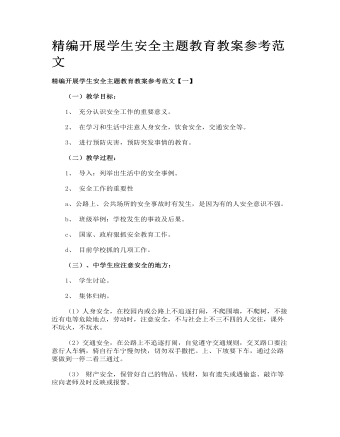
精编开展学生安全主题教育教案参考范文
交通安全 1. 行走时怎样注意交通安全 1)在道路上行走,要走人行道,没有人行道的道路,要靠路边行走。 2)集体外出时,要有组织、有秩序地列队行走。 3)在没有交通民警指挥的路段,要学会避让机动车辆,不与机动车辆争道抢行。 4)穿越马路时,要遵守交通规则,做到“绿灯行,红灯停”。 2. 交通安全 :全国平均每天发生交通事故 1600 起, 死亡 257 人 , 受伤 1147 人 , 直接经济损失 731 万。真是令人痛心。提醒学生们要特别注意交通安全,上放学时一定要遵守交通规则,过马路时要提高警惕,注意来往的车辆。及时消除交通隐患。
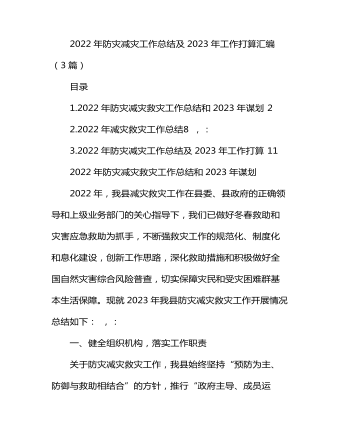
2022年防灾减灾工作总结及2023年工作打算汇编(3篇)
2022年,我县减灾救灾工作在县委、县政府的正确领导和上级业务部门的关心指导下,我们已做好冬春救助和灾害应急救助为抓手,不断强救灾工作的规范化、制度化和息化建设,创新工作思路,深化救助措施和积极做好全国自然灾害综合风险普查,切实保障灾民和受灾困难群基本生活保障。现就2023年我县防灾减灾救灾工作开展情况总结如下: ,:一、健全组织机构,落实工作职责关于防灾减灾救灾工作,我县始终坚持“预防为主、防御与救助相结合”的方针,推行“政府主导、成员运作、参与”模式,不断强化减灾防灾救灾共管理功能和社会服务功能。一是建立灾害预警发布机制、减灾防灾救灾综合协调和灾害应急管理体系、xx县应对自然灾害会商制度等,强部门之间沟通,确保自然灾害发生前早预警、早防范,灾害发生后早投入,将灾害造成的损失减小到最低。二是强部署,积极开展防灾减灾救灾宣传。紧紧围绕“x.xx防灾减灾日”和“国际减灾日”宣传活动主题,做好防汛抗旱、防震减灾、森林防火等有关知识宣传,提高群防灾减灾意识,努力营造全民参与防灾减灾的化氛围。通过开设专栏专题、展版宣传、印发发放科普刊物等各种形式,全方位做好防灾减灾救灾宣传工作。在两次宣传过程中,共发放宣传手册xxxxx余份,悬挂横幅xxx幅,设立展板xx块,发放宣传手提袋xxxxx余个,发放小礼品xxxxx余份。除此之外,还要求乡镇、社区、学校等广泛开展防灾减灾救灾知识宣传和组织开展避险应急演练,增强大家的防灾减灾意识和自救互救能力。三是建立和完善灾害息员息库,我县分别在2022年x月、x月对灾害息员息库息进行两次新,目前全县共有灾害息员xxx名,及时对全县xx个乡镇、街道办事处,xxx个行政村灾害息员进行新,防灾减灾救灾工作网格化管理工作进一步巩固。并要求全县灾害息员运用全国灾情管理系统手机版,一旦发生灾情,各行政村可以及时通过系统进行上报,确保了灾情报送的准确性和及时性。
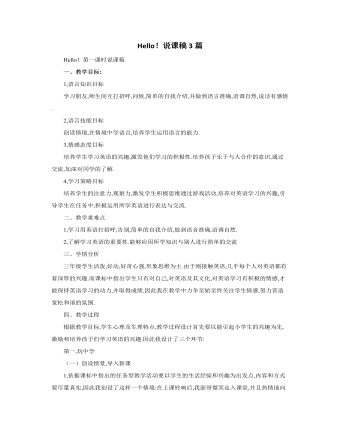
人教版新课标PEP小学英语三年级上册Hello!说课稿3篇
新授环节,教师引导语,“今天我们要与文具交朋友,看看他们是什么呢?看谁认识的朋友又快又准又多。”说完之后利用自制实物有声教具呈现文具的发音,方法是用识别笔点钢笔上的识别码,让钢笔自己说出:“Hello. I’m a pen. pen, pen, pen”学生对实物会说话非常好奇,极大地吸引孩子们的注意力,从而细心倾听它叫什么,从而记住文具英语的读音,大大调动学习的积极性及学习兴趣。对于四个单词的教学采用同样的方法。突破难点上采用分音节的方法教,如eraser, rayon的发音,使学生听到清晰的发音,然后再整体读,帮助学生更好的记住单词的读音。我们在课堂上创设一个有声有色的教学情景,再现一个现实生活的真实氛围,制作很多会说话的教具,这样就会吸引学生的注意力,激发他们对英语的兴趣。有了智能语音教具系统,这一切就很容易做到。